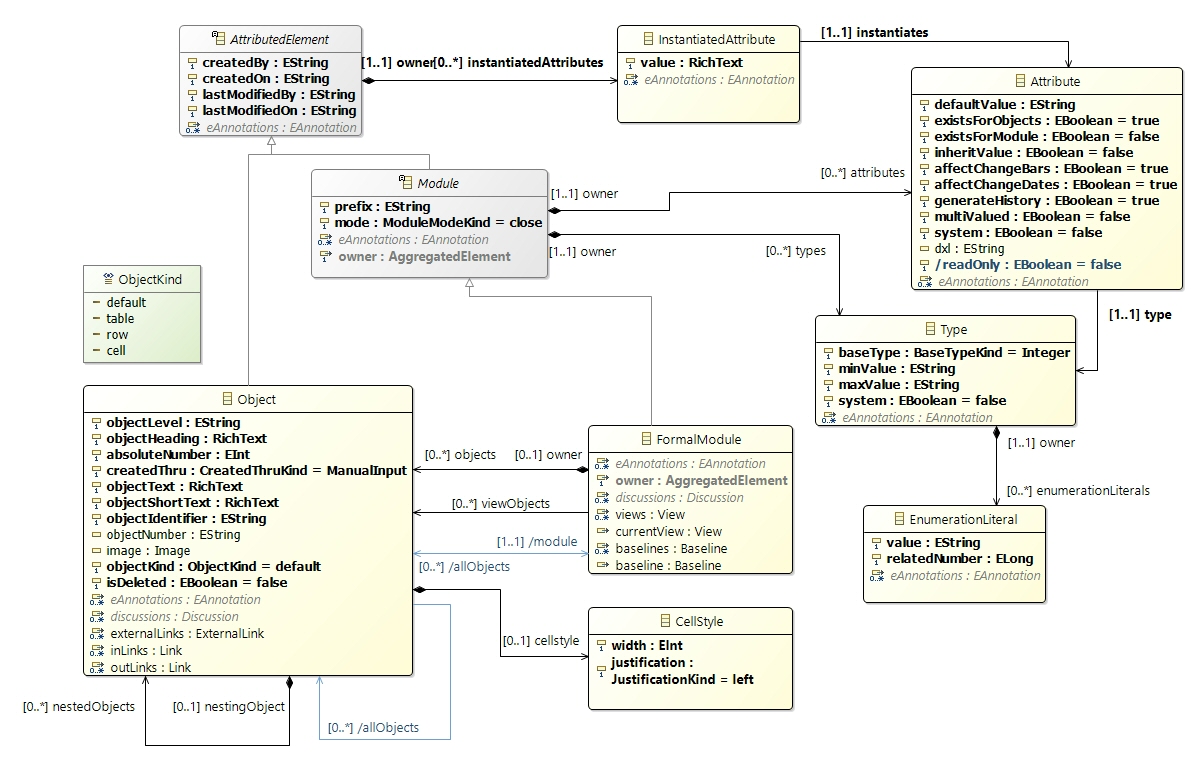
A FormalModule contains Objects,
organized as a tree of requirements.
Objects have built-in values (i.e. Object Text or Object Heading)
and user defined attribute values.
A formal module may define views, which enables Objects filtering.
You can get a formal module root objects by querying the FormalModule.objects reference. You can then go deeper in the object hierarchy by querying the Object.nestedObjects reference on a specific object. Going through these references allows browsing the object hierarchy regardless of the current view filters. (i.e. objects will always be accessible using these references even if they are filtered by the current view).
The FormalModule.allObjects reference
enables to get at once all objects contained in the module.
This reference is calculated based on successive objects and nestedObjects reference invocations.
The FormalModule.viewObjects reference returns the objects that are displayed in the current view, in depth first order. Depth first order is the order in which objects are displayed down the page in a formal module. This is a sub list of all objects, as some objects may be not displayed in a specific view.
A DOORS table is an object hierarchy displayed in the form of a table. Objects contained in table are read by the DOORS connector. DOORS internally uses special objects to represent the table itself and each row. These internal objects are ignored by default by the DOORS connector. However note that you can tweak the connector to retrieve these objects.
The Object.objectKind attribute can have the following values:
defaulttable: internal DOORS object representing the table itself.row: internal DOORS object representing a table row.cell: an object contained in a table.